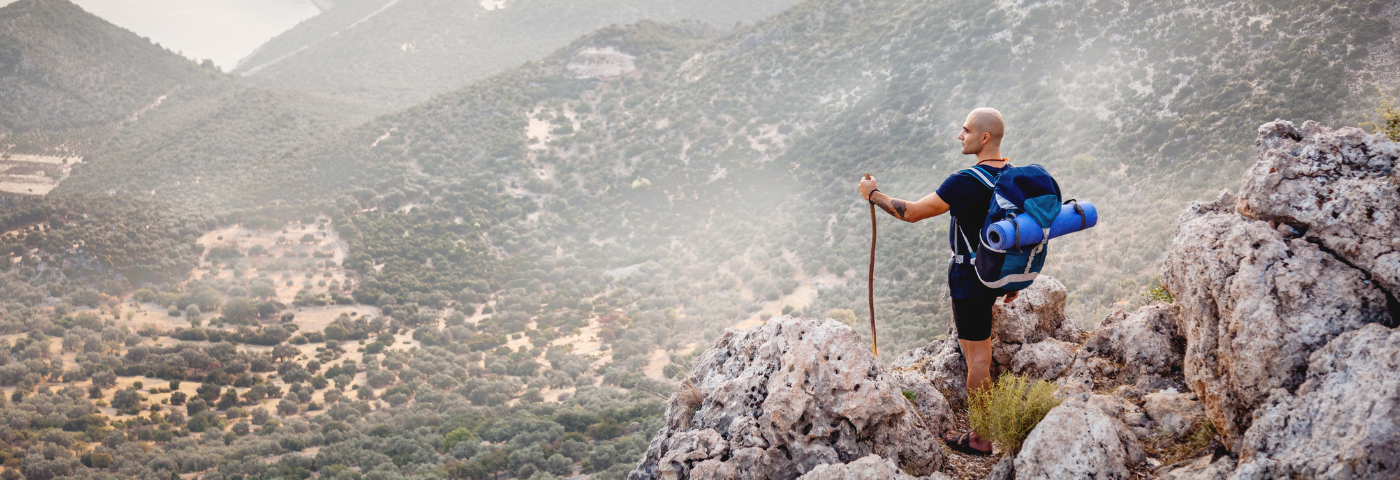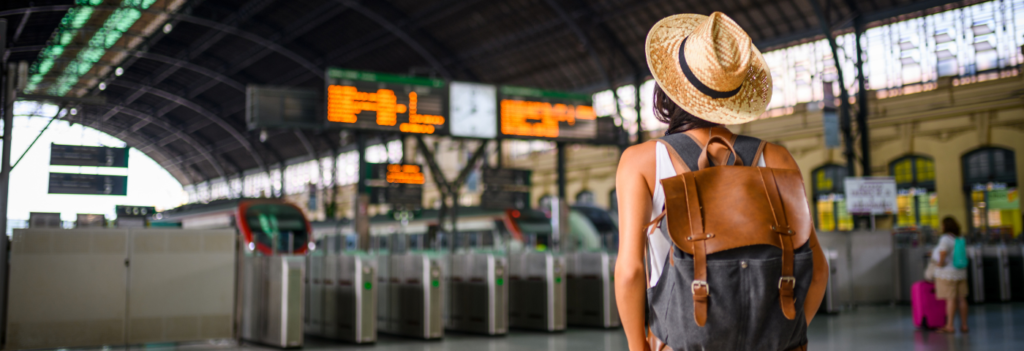By Steve Keenan, Co-Founder, Travel Perspective
There are more people travelling solo than ever before, with the pandemic accelerating a thirst for adventure after lockdown.
Google searches for solo travel since April 2020 quadrupled to a new high this month (see below), with demand evident across all age groups.
Not only millennial backpackers but solo travellers of all ages joining small tour groups, forcing the travel industry to think differently about this fast growing travel trend.
Tour operator Contiki has branded itself as a social travel company, catering for travellers in their 20s and says half of bookings this year are now for solo travellers.
Meanwhile, Explore Worldwide has set up a division offering small group tours especially for those aged 60+ travelling alone.
These aren’t coach trips to Blackpool or a week in the Costas – older, affluent travellers want adventure.
Travel giant Kuoni has also begun targeting single travellers, selling small group tours through its subsidiary Jules Verne. Said a spokeswoman: “We’ve seen a 25% increase in solo travel post-pandemic to destinations such as Italy, France, Armenia, Turkey and Egypt.
Added Zina Bencheikh, managing director EMEA of Intrepid Travel: “We are seeing a strong interest in solo travel post-pandemic. Over 60% of our tours are being booked by solo travellers with some favourites including Morocco, Jordan, Bali, and Everest Base Camp.
“Solo travellers are attracted to small group style of travel as they can have a ready-made group of friends to explore with, independent time and a safety net through a local guide who they can turn to for itinerary recommendations and assistance.
“This is even more important to solo travellers since the pandemic. Tour operators are able to help out travellers on the ground when they need it most and adapt plans if needed, which offers reassurance to travellers when there’s travel disruptions.”
It’s a big trend, with solo travel now estimated to account for 17% of all travel globally since the pandemic. Just pop onto Instagram and search the tag #solotravel – and 7.5M posts will come up, an indicator of how huge the market is.
According to research this summer by Bridget Coleman, founder of the website The Flashpacker, the average age of a solo traveller is now 47, reflecting the surge in interest among tour operators to carve a niche in the market.
Women continue to outstrip the number of men going solo. Try Googling solo travel and the ‘People also searched for…’ box has Solo Travel female as its top result, indicating high search volume.
An American solo travel site The Wandering RV puts the proportion of women as high as 84% of all single travellers. That seems a little high but women do dominate all age categories for the sector, from mature singles on a small group tour to Jordan through to millennials travelling solo through Asia.
I read one interesting take on the solo boom this year from American PR company Dana: “Here’s our take on what’s contributing to the latest push: Between pent-up demand from missed girls’ trips in 2020 and 2021 and varying comfort levels between friends about venturing out just yet (hi, omicron!), some women are deciding they can’t wait for the squad to get together—so they’re striking out on epic solo journeys.”
Epic indeed: just Google ‘solo woman RV’ and go to Images and you’ll find dozens of blogs from women travelling solo in camperhomes.
As assessed by Solo Traveler World, 77% travel alone because they want to “see the world” and not “wait for others”. They want to do what they want when they want, are interested in meeting new people, personal growth and like being independent.
That criteria applies to all age groups, and many younger travellers still follow the hostel backpacking model – and not only because of cost. “A lot of my readers are solo travellers choosing to stay in hostels, even when they can afford to stay in hotels,” says Kash Bhattacharya, the blogger behind Budget Traveller.
“There is a lot of flexibility that hostels offer, a choice of dorms and privates plus also option for organised activities. Plus many hostels have good Wi-Fi and space to work from, so it’s ideal for solo travellers working on the road.
“The other key reason is that they want to connect with other solo travellers. Who needs Tinder: why waste money on dating apps when you have hostels?”
Indeed, hostel brand Hostelworld has just launched a new app/solo travel system whereby solo travellers can connect as, for women, the number-one fear is safety. According to Bridget Coleman, 73% of solo female travellers worry about safety – and it’s the main reason that prevents women from travelling.
Across both genders, other worries are getting lost, feeling lonely and the higher cost of travelling solo, largely due to hotels charging single occupancy supplements.
By nature of their clientele, many small tour companies have removed the charge and Norwegian Cruise Line is the first to do so in its sector.
Personally, I enjoyed nine months travelling solo in Latin America, hooking up with other solos along the way, teaching for a while in Lima and exploring the back trails of Peru, Ecuador and Colombia.
Back then, there was no internet, so it was telephone or letter to occasionally stay in touch with home. It’s something else to think about when travelling solo: don’t turn on your mobile for a week, jump a bus on the Namibian border then work out what to do next, don’t call home and do learn some local slang. That’s all part of solo travel too.
Interested in learning more travel trends for 2022? Secure your place at World Travel Market London to get your knowledge up to date!



